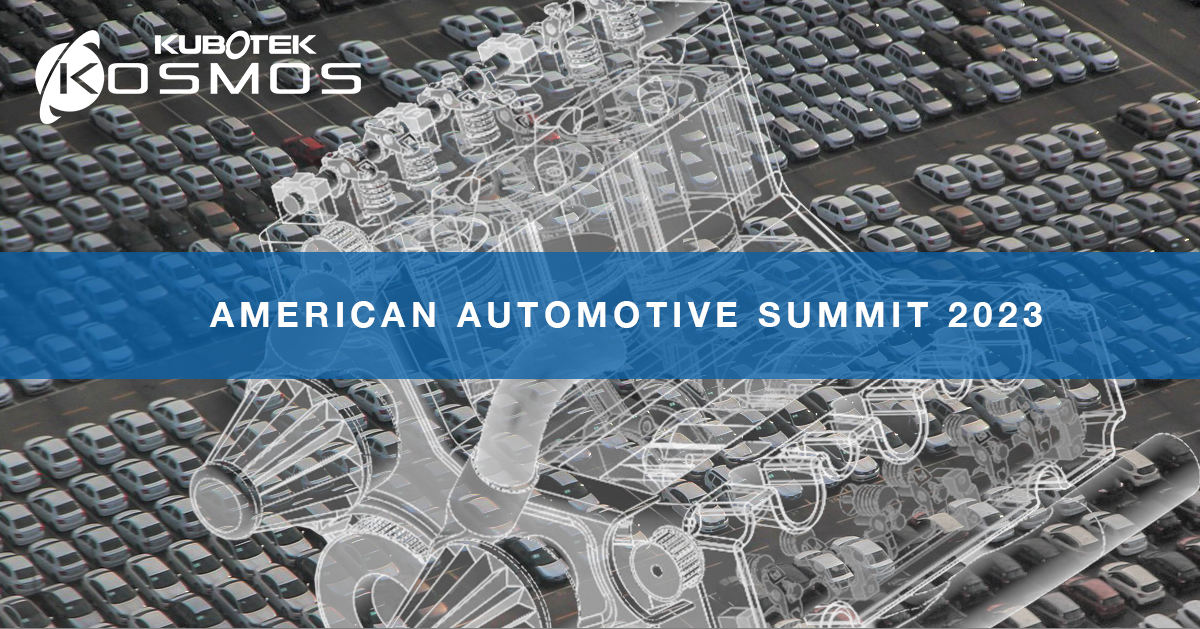Next week, Kubotek Kosmos will again be taking part in the American Automotive Summit, being held October 24 & 25, at the MGM Grand in Detroit. The summit is a gathering of executive-level representatives from business throughout the automotive segment, from consumer-facing automotive brands both domestic and foreign as well as major suppliers and representatives of the manufacturing, quality, and engineering segments.
Kubotek Kosmos is proud once again to be a Silver Sponsor of the event, giving our own Andy Beaupré the chance to hold a roundtable discussion with participants. Andy's topic will be "Key Lessons Learned from Aerospace Supplier CAD Translation Validation Requirements," sharing insights on effective management of product definition data from aerospace-related business and manufacturing.
While Detroit is still a central hub of the industry — it continues to earn the nickname of Motor City — even domestic automotive production is a highly internationalized industry. Whether it is collaboration between US and Japan-based car makers or the global supply chain, the sourcing of parts and materials continues to be driven by the goal of greater cost efficiency. The wider this circle grows, the more frequently CAD translation processes factor into quality and productivity.
Data inside other data on top of more data
On the engineering and manufacturing side, this is playing out through the continuing advancement of model data exchanged between OEMs and suppliers. As more and more elements of a showroom-ready vehicle are sourced from different suppliers, and as the models exchanged with suppliers contain more and more complex engineering data (such as product manufacturing information, or PMI, to name just one) the need for accurate model data transfer has never been greater.
This engineering challenge has been a central focus of ours for years. Our Validate and Revision CAD utilities enable OEMs and suppliers to easily manage the crucial task of ensuring that model data is not compromised when exchanged between CAD systems, preventing delays or manufacturing errors.
More efficient production is crucial to an automotive industry that is undergoing some profound adjustments, whether it is recovering from pandemic-related downward sales trends or adapting to consumer demand for innovations like electric vehicles.
We look forward to providing technical insights to summit attendees as relates to outsourced manufacturing and parts production and the impact of how 3D models are exchanged across the multi-CAD environment.


